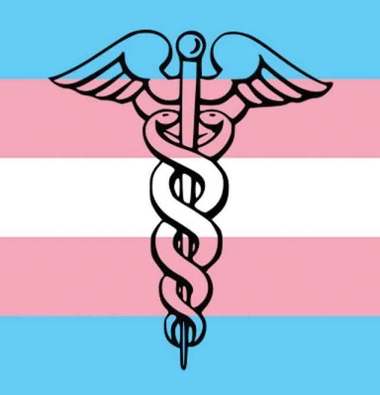Rural health and the “trans broken arm” phenomenon

by Douglas Knutson, Ph.D.
Special Research Columnist
If you are cisgender and you go to the doctor with a broken arm, does the doctor inquire about your hormone levels or ask to see beneath your clothes? You may be laughing or thinking “Really? Why would that happen?”
Unfortunately, if you identify as transgender, this scenario may sound familiar. The tendency for health care professionals to assumptively connect routine medical issues to being transgender is referred to, by some, as the “trans broken arm” phenomenon.
For some gender diverse people, it’s not easy to simply show up at a medical facility or a psychologist’s office to get help for typical problems. Whether it makes sense or not, you may end up being asked about your identity as if it is an important part of your fractured arm.
Of course, sometimes being gender diverse in a binary world can be challenging and transition may play a role in health, but the assumption that all health issues of a trans person are due to their identity is harmful and can lead to lack of care and even direct harm.
Given the lack of training health care professionals receive regarding non-binary gender identities, it may be hard for professionals to determine what role transgender identity plays in a person’s life. Part of the reason is that some health providers may hold biases against or lack knowledge about transgender people. This can be more pronounced in rural areas.
Julie Koch, Ph.D. and I led a research team at Oklahoma State University to explore health care experiences among transgender people in non-urban locations throughout the United States.
The team conducted interviews with 10 people who identified as transgender or gender diverse and as rural residents. Findings were recently published in the Journal of Research on Women and Gender and are available online.
For some, encounters with health care professionals were fraught with negative experiences that increased sadness and anxiety. Being altogether misdiagnosed by their providers was reported by a few. Some experiences were shocking.
Against the backdrop of the difficult stories that were told, the resilience and resourcefulness of gender diverse people was clear. In addition to calling for physicians to provide more informed and affirmative care, research participants shared stories of their efforts to compile resource lists, educate physicians and provide support for fellow community members.
There were empowering messages for gender diverse people in rural areas. Those surveyed offered encouragement not to give up and assurance that, even if help may be hard to find, there are competent providers available.
Stories of resilience and empowerment and statements of pride about the importance of gender diverse identities were shared. Participants encouraged other gender diverse people in rural areas to get connected to social networks, search for competent service providers and to see value and beauty in their own lives.
A lot of work is left to be done. Providers in both rural and urban areas may hold unhelpful assumptions about gender diverse people. “Trans broken arm” continues to be a very real issue. However, through studies like ours, it may be possible to shine a light on issues, solutions and the incredible resilience of gender diverse communities.
As members of the LGBT+ community learn more about difficult experiences across our country, we can educate those around us and use our knowledge to promote change. Everyone can make a difference, including you.
Copyright The Gayly – November 4, 2017 @ 7:30 a.m. CDT.





